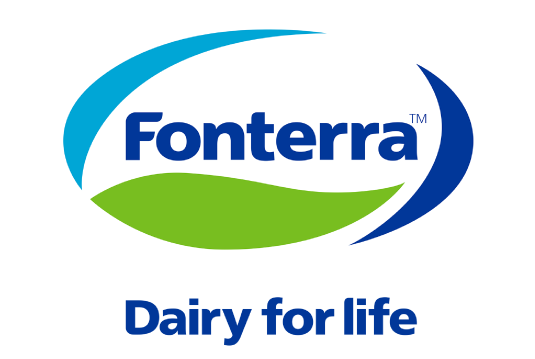2019 Sustainability Report shows Fonterra picking up the pace

Co-firing biomass to reduce coal, lifting the number of New Zealand products with Health Star ratings and launching an emissions profile for every farm headline Fonterra’s 2019 Sustainability Report.
While these and other gains are pleasing and have laid some good foundations for the future, Fonterra CEO Miles Hurrell says there is still a lot of work ahead.
“Our 2019 Sustainability Report is an important step towards sustainability being at the heart of our business,” says Mr Hurrell.
“Given the tough year we had, it would’ve been easy to push sustainability to one side, whereas we have in fact continued to make progress. We’ve underlined our commitment to the importance of sustainability and firmed up plans to do more on climate change, coal, waste and sustainable packaging.
“The report is a discussion with New Zealanders around the kind of world we want to leave for future generations and how we’re measuring ourselves against that ambition.
“I’m focused on being a part of a New Zealand dairy Co-op that’s producing nutrition in a way that cares for people, animals and our environment, and brings value to our communities.”
Carolyn Mortland, Global Sustainability Director, says this is Fonterra’s third annual Sustainability Report, and reports against its new triple bottom line of Healthy People, Healthy Environment and Healthy Business.
“Establishing our inaugural Sustainability Advisory Panel is a critical move to helping guide us as we continue to strive to be a world leader in sustainably-produced dairy nutrition,” says Ms Mortland.
Thanks to the hard work of our farmers and employees, highlights from 2019 include:
- Healthy People: We’re working together to care for people and make a positive impact on society. Whether that’s through rolling out healthier foods, reducing staff injury rates, or serving up 30 million KickStart Breakfasts.
- Healthy Environment: We’re working together to achieve a healthy environment for farming and society. More Fonterra farms now have a Farm Environment Plan and every farm will have an emission profile by end of 2020. We’ve launched new packaging and waste targets, our manufacturing site emissions are down, and we piloted ways to move sites away from coal.
- Healthy Business: We are working together to deliver a sustainable business, such as returning $10 billion to regional New Zealand, introducing a new fixed milk price tool, and reducing our capital spend and debt.
“But there’s still a lot more work to do, such as supporting our farmers in their response to climate change and doing more to bring greater gender and ethnic diversity into our business. We don’t shy away from the fact that we need to do more against some of our ambitious targets,” Ms Mortland added.
“What is clear is that we made some good progress in a tough year and have set ourselves up for the years ahead.”
Read the full 2019 Sustainability Report here
View infographic on 2019 key achievements
Key highlights from the 2019 Report (figures are to July 2019)
- This is our third annual report
- The first to reflect our new triple bottom line goals of Healthy People, Healthy Environment and Healthy Business
- Despite a tough year we’ve continued to ensure sustainability is a priority, while also recognising there is more work to be done
- Established our inaugural Sustainability Advisory Panel
Healthy People:
- Injury rate reduced to a world-class level
- Served up 30 million KickStart breakfasts to Kiwi kids
- Increased consumer choice with 92% of our New Zealand products having Health Star Ratings
- 99% of PKE is traceable back to mill
Healthy Environment:
- 23% of all our New Zealand farms have a tailored Farm Environment Plan
- Launched goal to have farm emission profiles for every farm by October 2020
- New zero waste and recycling packaging targets
- Piloted alternatives to coal by co-firing wood biomass at our Brightwater site and trialling wood pellets at Te Awamutu
Healthy Business:
- $10 billion returned to regional New Zealand for 2018/19 season
- Capital expenditure reduced by $261m
- $6.35 per kgMS Farmgate Milk Price
- New fixed milk price helps farmers reduce risk from global milk price volatility.

